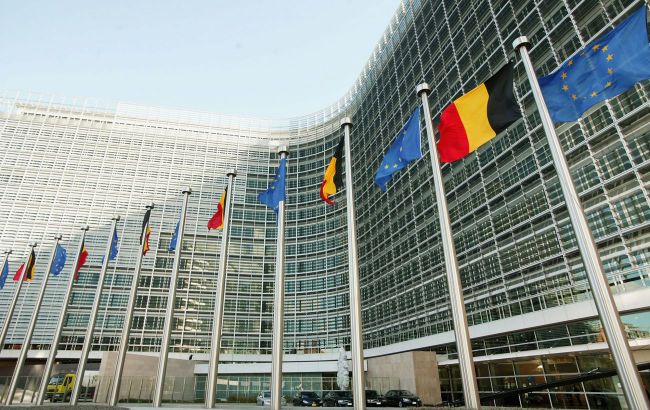EU Commission aims to protect Brussels HQ from drone attacks
 Photo: The European Commission wants to protect its headquarters in Brussels from drone attacks (Getty Images)
Photo: The European Commission wants to protect its headquarters in Brussels from drone attacks (Getty Images)
The European Commission is considering the possibility of installing anti-drone technology at its Berlaymont headquarters in Brussels, reports Politico.
The EU executive has already started looking for companies that could provide this equipment.
The system would be designed to ward off espionage from unmanned aircraft as well as physical attacks.
"Brussels is well known in diplomatic circles as being a hotbed of spying. There have been dozens of reports of people working for foreign states disguised as officials, journalists or NGO workers in a bid to gain special access. Drone warfare would represent a new front by enemy countries to attack the heart of the EU," says the article.
What kind of system may be installed
"Unauthorized drones flying in close proximity to sensitive public buildings could potentially represent a security threat," said a spokesperson of the European Commission.
According to him, the European Commission, together with other interested parties and the Belgian authorities, are considering possible measures to eliminate the threat. However, as this is a security issue, the European Commission cannot comment further on the measures that have been taken or will be taken.
It is also noted that these can be cameras that detect unmanned aerial vehicles or electronic devices that block the operation of drones.
European Commission is already trying to protect itself against espionage
The European Commission and other EU officials handle sensitive information and in the past have closed curtains or blinds, even on upper floors, out of fear that a drone could take pictures of people or documents, and film secret meetings through windows.
The Berleymont building, which houses some of the most senior European Commission staff of around 32,000, is also home to its president, Ursula von der Leyen.
The commission has previously issued strategic documents and guidelines advising against drones. Brussels has also introduced measures to control the movement of drones in its airspace, which took effect last year.
What other EU bodies say
The Council of the EU, which represents member countries and whose headquarters is situated over the road from the Berlaymont, and the European Parliament, whose main Brussels building is about 1 kilometer away, declined to say whether they were considering similar measures.
A Council representative said the institution “does not communicate on operational securities measures.” However, “appropriate measures are taken to respond to any specific or general risk.”
NATO is preparing for possible escalations
The head of the NATO Military Committee, Admiral Rob Bauer, said that the alliance needed transformation, and the West must prepare for an era in which anything can happen at any time, including the start of a war.
His statement was made against the background of the delay or limitation of military aid to Ukraine from the United States and the European Union.
On January 16, President of Ukraine Volodymyr Zelenskyy warned that the West's hesitation in supporting Kyiv and fears of an escalation of the war with Russia could prolong hostilities for years.
Earlier, the German Bild wrote that NATO intended to conduct large-scale exercises in February with the participation of about 90,000 military personnel. The scenario of the exercises is an attack by the Russian Federation on the territory of the Alliance.

